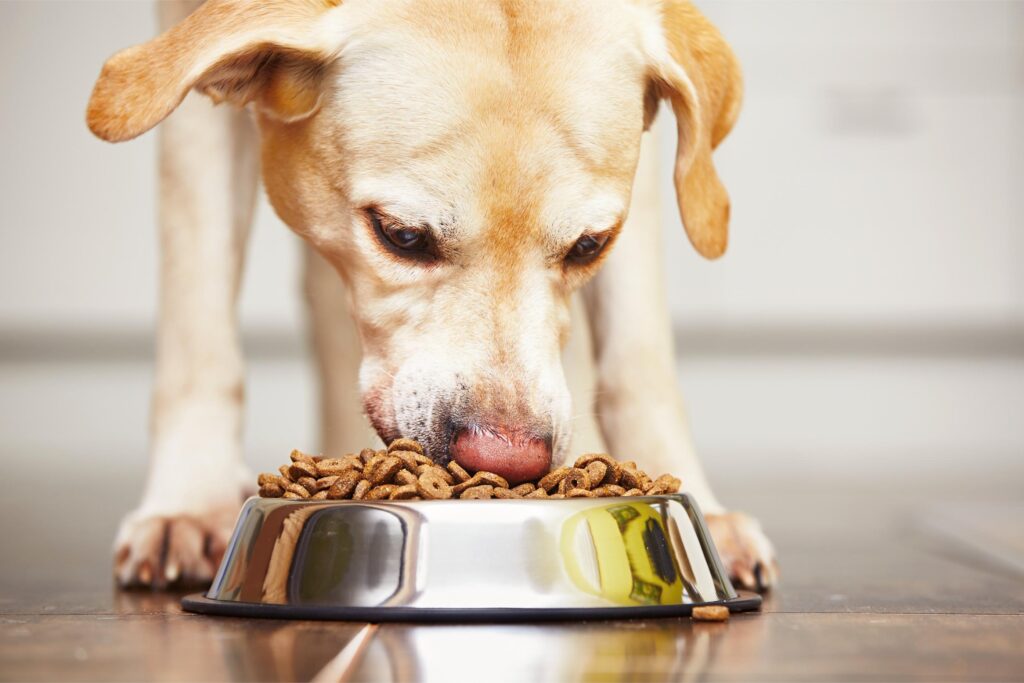When it comes to feeding pets, there is no such thing as a “one-food-fits-all” approach. Providing pets with a diet optimized for each life stage promotes better overall health, and in this blog, our team at Clairmont Animal Hospital helps you put the best nutrition possible on your pet’s plate.
The Life Stages of Pets
There are four recognized life stages of cats and dogs, and each has specific nutritional requirements:
- Growing Pets (puppies and kittens)
- Adult Pets
- Senior Pets
- Pregnant or Lactating Pets
Proper Puppy and Kitten Nutrition
Puppies and kittens need more protein and minerals to support proper growth and help them pounce and play all day. Here are general guidelines if you’re looking for tips on kitten or puppy nutrition.
Kitten Nutrition: Choose a food specifically labeled for kittens (adult cat foods do not contain the right balance of nutrients for growing kittens). Kitten diets should be 35-50% protein, 18-35% fat, and 1-2% calcium.
Puppy Nutrition: Puppies have their own needs for healthy growth, and shouldn’t be fed foods designed for adult dogs. Puppy diets should be 22-32% protein, 10-25% fat, 20% digestible carbs, and about 1% calcium.
Nutrition for Adult Pets
Once pets reach adulthood, their nutritional needs change significantly. Most spayed or neutered adult pets can cut down on calories during this stage. Choose a high-quality diet made for otherwise healthy adult pets, and feed your pet the amount recommended on the label. The amount of calories must be balanced with a pet’s level of physical activity to prevent the pet from becoming overweight.
Senior Pet Nutrition
While adult pet food is designed to help your pet maintain a healthy lifestyle, senior pet nutrition is formulated to address the specific needs of aging pets. Pet foods designed for senior pets typically contain fewer calories, but higher ratios of protein and nutrients. Diets with added omega-3 fatty acids offer support for aging joints, and some senior pet foods are designed for easier digestion.
Special Nutrition for Pregnant or Lactating Pets
Pregnant or nursing pets need nutrient-dense diets to meet their needs for caloric intake, nutrients, and weight maintenance.
Pregnant cats and dogs will both consume about 50% more food than normal by the end of pregnancy. Of all life stages, nursing pets need the most calories. Lactating dogs require anywhere from 2-4 times as many calories as normal, and nursing cats should be fed a highly digestible kitten formula for added protein. For reference, expect to feed a 10-pound nursing cat about 600 calories per day.
Seek Professional Input
With the abundance of pet food choices filling store shelves, selecting just the right diet for your pet’s life stage can be overwhelming. Consulting your veterinarian at your pet’s wellness visit can ensure that your pet is eating a nutritionally sound diet that meets his or her needs throughout each life stage.
Please contact us at (404) 633-6163 if you have questions about pet nutrition or to schedule your pet’s visit.


